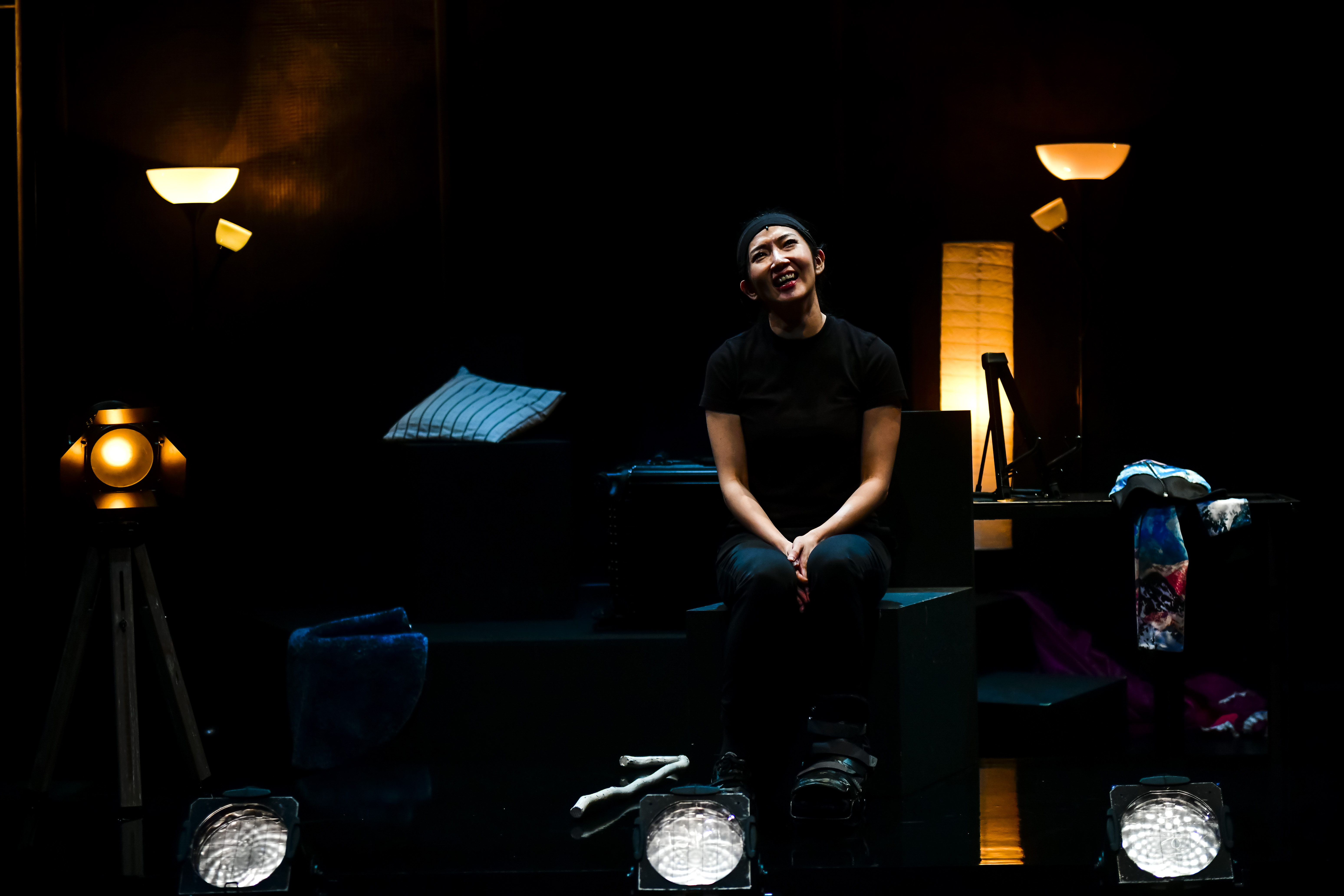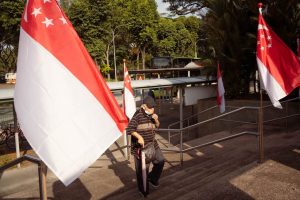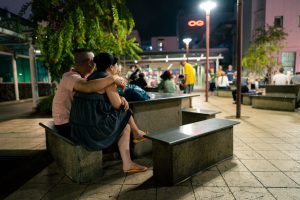The Singaporean yearning to leave home is as enduring as the sound of airplanes above Changi. Stranded in a little red dot, our claustrophobic selves aspire to see the world for what it is. Something has to be out there, something more, something great.
But we also yearn for something ‘other’ because we don’t feel like we fit in. Today’s youth live in a very different world than their parents. Traditional, localised culture has been supplanted by global, arguably westernised media that the younger generations have grown up with.
With a wide range of culture made accessible through the Internet, the average Singapore child can have wildly contrasting formative influences. From Enid Blyton to Doraemon, Nickelodeon to BTS, all the world’s a stage to traipse on. Having a uniquely cobbled together sense of self that you can’t see reflected in your surroundings makes one want to leave and never turn back.
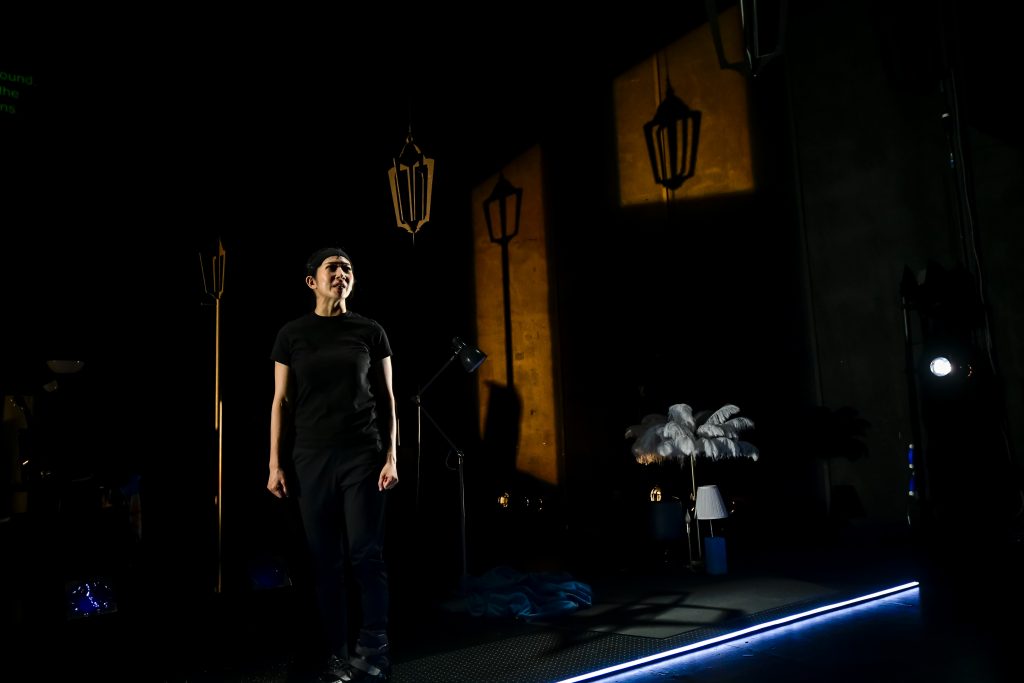
She also plays the colourful cast of classmates—Sophie from Manchester, American douche Scott, and Yum Yum the Chinese girl from China. And she’s the eccentric, grumpy professor Laroche, who reveals to Jeanette that she doesn’t know her native language.
When asked to perform a monologue in said language, Jeanette first does it in impeccable Queen’s English, and then hobbles along in broken Chinese. Even belting Macbeth in idiosyncratic Singlish gets a shake of the head, with Laroche nagging Jeanette that she’s still faking it.
So what is this elusive ‘monologue in her native language’?
The play positions Forked itself as the response.
Jo Tan revolves through a multitude of accents, code-switching with expert ease and uncovering layers upon layers of linguistic history and complexity. On top of the multiple characters, Jeanette herself has her British accent, her American accent, and her speaking voice, which changes in intonation and vocabulary when she talks with her parents. The play is a whiplash from start to finish which speaks volumes about Jo’s range as an actress.
Through her performance, one gets the sense that being Singaporean is to be a chameleon; perpetually off-balance. It’s serendipitous when a boot meant for healing a hairline fracture on Jo’s foot gives the impression of her having uneven footing as she stalks around the stage. Jeanette’s constantly trying to please, but not quite there, never accepted.
She doesn’t fit in.
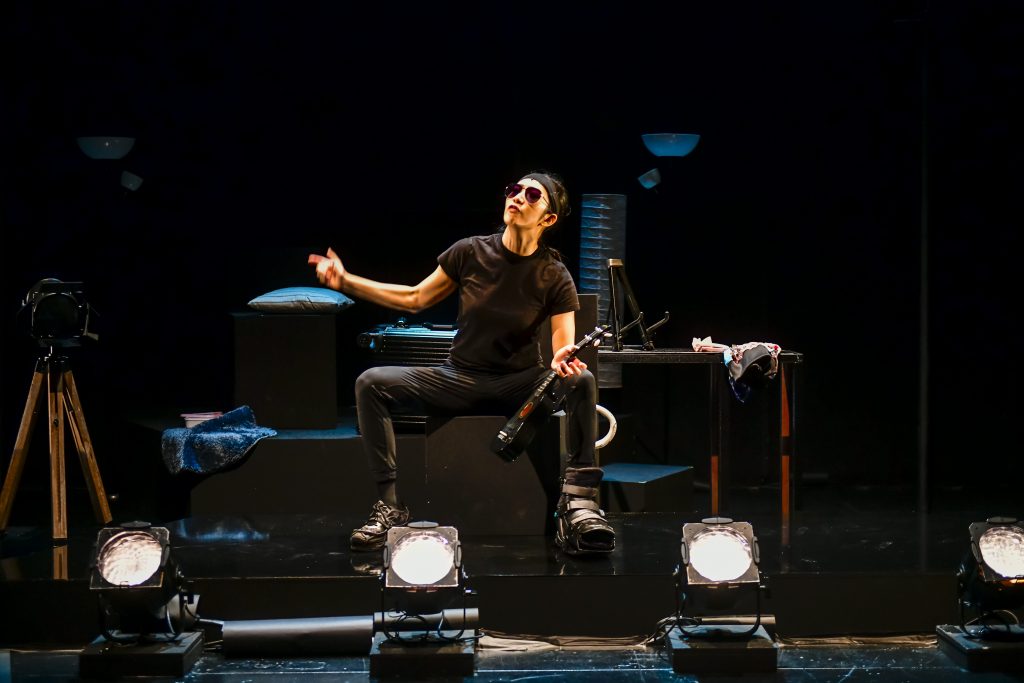
Heck, if you’re a minority of any form, you already deeply know what it’s like to not see yourself represented in daily life. How can you feel at home when there’s nothing like you around you?
A Singaporean identity is complex, confusing, and many would even scoff that it doesn’t exist. They may be right, but ‘Singaporean’ doesn’t have the weight of history to back it up. 54 years is but a blip when compared to countries and continents spanning millennia. Forging a national identity takes a lot more time than that.
Our country also began modernising when the world was already ‘modern’. We’ve had to play catch up while nursing our colonial hangover, and caught up we did. The breakneck speed at which our pioneer generation built our nation could have very easily contributed to this cultural dissonance with our citizens living across two different eras.
It also doesn’t help that we’re a mess of contradictions. Singapore is an English speaking, ethnically Chinese majority nation in a region surrounded by Malay-Muslim neighbours. We are Westernised without the trappings of ‘liberal ideology’; we’re conservative with ‘traditional Asian values’. Is our legacy that of being pulled in every other direction? How do we begin to reconcile all these differences that just make us feel lost?
Forked proposes that it’s about taking ownership of our culture and who we are.
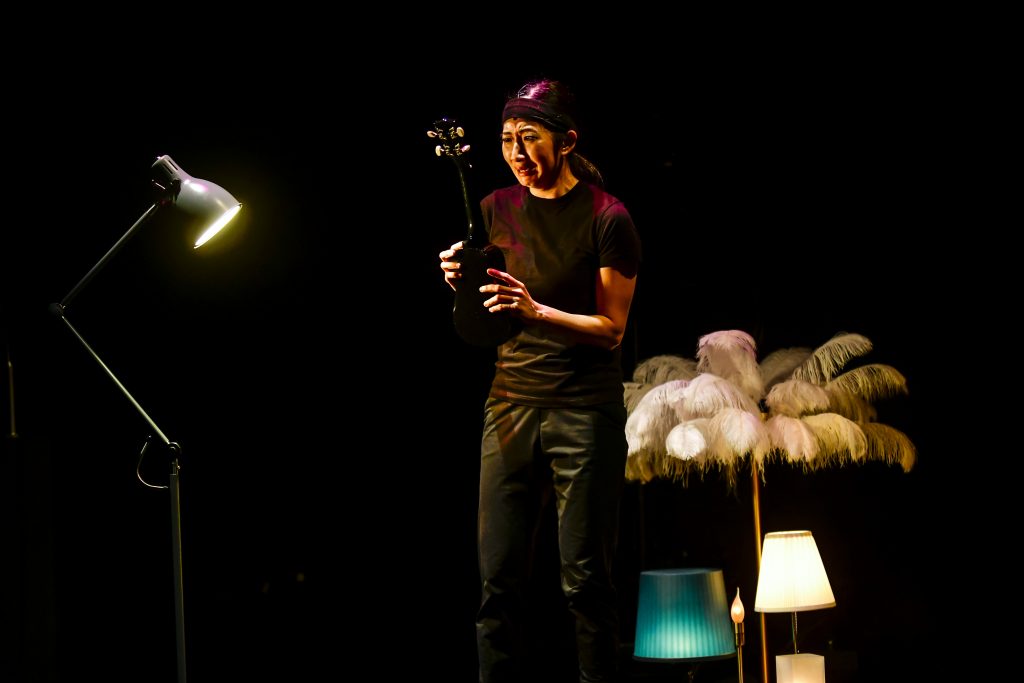
Thus we lack confidence in our language and our identities. Despite the many faults of the other characters in Forked, they are unapologetic in who they are. Sophie speaks in slang and grammatically broken English. She doesn’t adjust to others or expect them to meet her where she’s at.
Even Yum Yum’s carefully curated portrayal of herself has her in full control and ownership of who she is. She’s comfortable in her cunning and in embodying stereotypes of Chinese-ness, and that’s how she presents herself to the world.
But the solution isn’t to spout Singlish at every given opportunity.
Our local patois as often portrayed in media is a caricature in itself. We’re not here to police what’s proper Singlish or not, but Singaporeans speak in varying ways, in their own forms of Singlish. There is no monolithic Singaporean, and no right way to exist in this world.
It’s why Singlish alone isn’t Jeanette’s native language. The entirety of Forked, code-switching between American, British, Chinese, French and Singaporean personalities is what defines Jeanette as it defines Jo. It’s about coming to terms with what makes who we are, and doing our best to be proud of that.
As Director Chong Tze Chien shares during the post-show dialogue, being genuine with one’s identity is about reaching that emotional truth within oneself. When actors play a character, they understand who they’ll be embodying thoroughly—their desires, their relationships, their fears and their beliefs.
This emotional truth and the intention behind the speech is what the audience comes to watch, and what they’ll connect with. Even if they can’t understand Shakespearean English or whatever language is being used on stage, the emotional understanding shines through.
Why shouldn’t we do the same with ourselves?
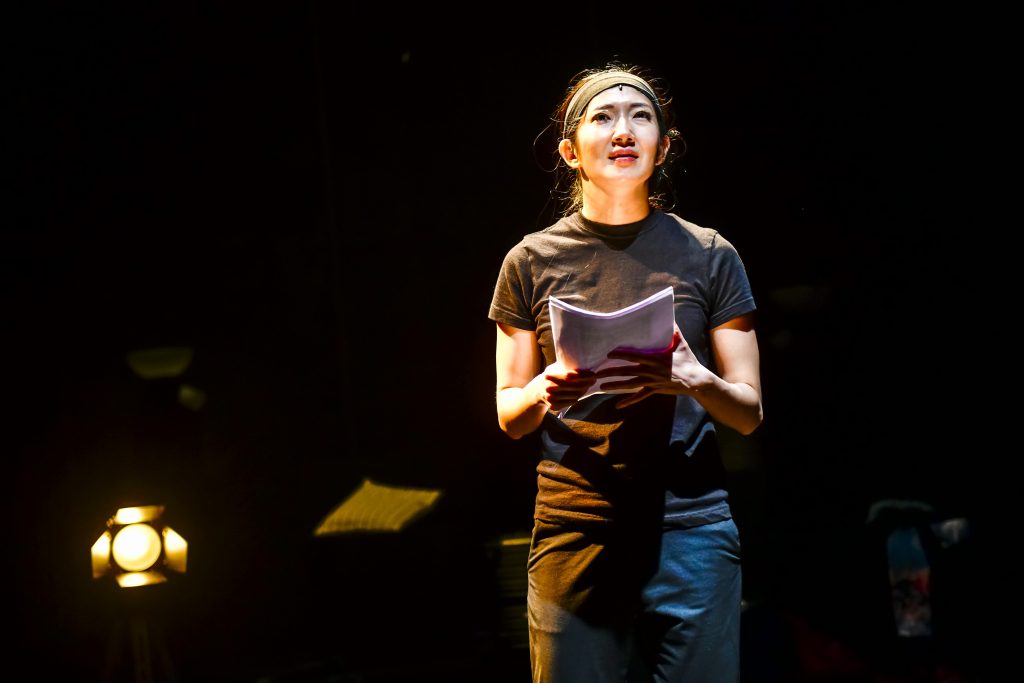
“I always thought when Singaporeans go overseas and receive accolades they’d be like ‘Thank you so much! I’m from Singapore-’ but he spoke in such authentic Singaporean English that I didn’t know you could just do.”
But being this comfortable in your skin is not something that comes easy. How can we do so when we feel like strangers even in our own home?
“Perhaps I’ll never be a good fit anywhere,” Jeanette says in her closing remarks. “Perhaps, neither will you. And yet, here we are.”
Here we are.
Are you struggling with an identity crisis? Don’t worry, we get it. Deliver your monologue in your native language to community@ricemedia.co.

